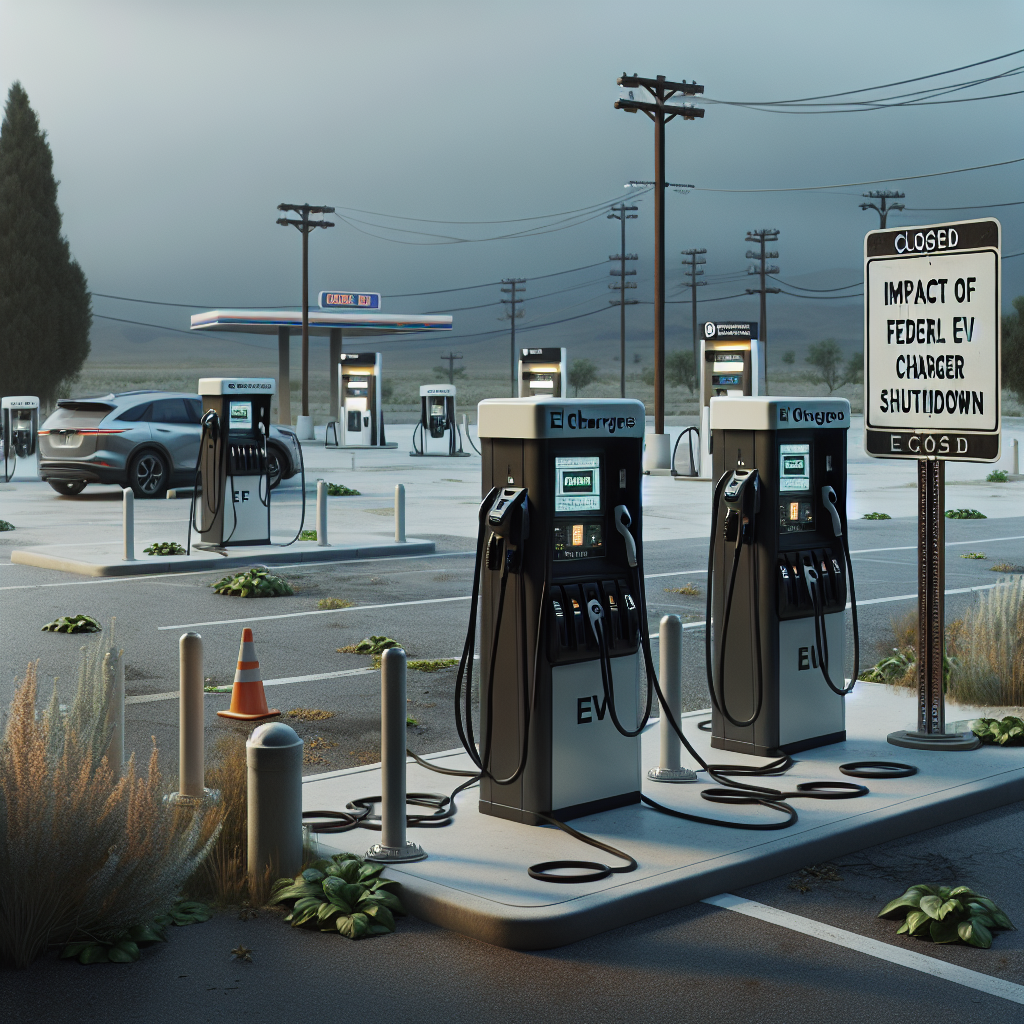In a surprising turn of events, reports have emerged indicating that the Trump administration is set to shut down the entire network of electric vehicle (EV) chargers managed by the General Services Administration (GSA). This move could have significant implications for the future of EV infrastructure across the country.
According to a recent report by The Verge, the GSA currently oversees a vast network of EV chargers, boasting hundreds of stations equipped with a total of 8,000 plugs. These chargers play a crucial role in supporting the growing number of electric vehicles on the roads today, providing essential infrastructure for both government vehicles and the general public.
The decision to dismantle this network of EV chargers raises serious concerns about the administration’s stance on clean energy and sustainability. With the global push towards reducing carbon emissions and combating climate change, the widespread adoption of electric vehicles has been a key strategy in many countries.
By shutting down federal EV chargers, the Trump administration could potentially hinder the progress of EV adoption in the United States. This move not only impacts government fleets that rely on these chargers but also sends a discouraging message to the public about the importance of investing in clean transportation options.
The implications of this decision extend beyond just the availability of charging infrastructure. It also raises questions about the government’s commitment to supporting innovation in the automotive industry and promoting technologies that can help reduce greenhouse gas emissions.
At a time when countries around the world are ramping up efforts to transition to a low-carbon economy, the reported shutdown of federal EV chargers sends a conflicting message about the priorities of the U.S. government. It underscores the need for consistent and long-term support for clean energy initiatives to drive meaningful change.
As the transition to electric vehicles continues to gain momentum globally, the availability of reliable charging infrastructure is paramount to support this shift. Governments play a crucial role in facilitating this transition by investing in charging networks and incentivizing the adoption of EVs.
In light of these developments, it is essential for policymakers to consider the long-term implications of dismantling critical EV infrastructure. Supporting the growth of electric vehicles is not just about reducing emissions; it is also about driving innovation, creating jobs, and securing a sustainable future for generations to come.
While the fate of the federal EV chargers remains uncertain, the potential impact of their shutdown serves as a stark reminder of the challenges facing the clean energy transition. It underscores the importance of consistent support for initiatives that promote sustainability and pave the way for a greener future.
As the automotive industry continues to evolve towards electrification, decisions regarding EV infrastructure will play a pivotal role in shaping the future of transportation. It is imperative for policymakers to prioritize investments in sustainable technologies and infrastructure that can help drive progress towards a more environmentally friendly and resilient society.
In conclusion, the reported shutdown of federal EV chargers by the Trump administration raises significant concerns about the future of electric vehicle infrastructure in the United States. As the world shifts towards cleaner and more sustainable transportation options, it is crucial for governments to prioritize investments in EV charging networks to support this transition effectively. The decision to dismantle these chargers underscores the need for a consistent and unwavering commitment to advancing clean energy solutions for the benefit of current and future generations.

